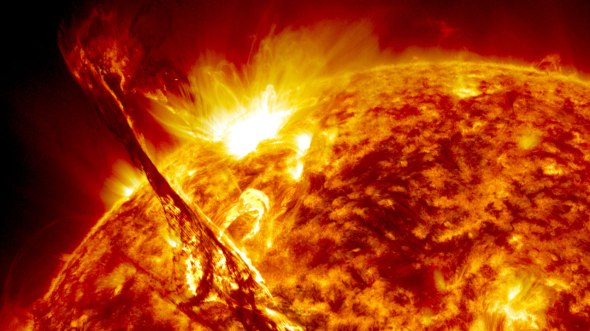
Solar Dynamics Observatory: Year Three
On Feb. 11, 2010, NASA launched an unprecedented solar observatory into space. The Solar Dynamics Observatory (SDO) flew up on an Atlas V rocket, carrying instruments that scientists hoped would revolutionize observations of the sun. If all went according to plan, SDO would provide incredibly high-resolution data of the entire solar disk almost as quickly as once a second.
When the science team released its first images in April of 2010, SDO’s data exceeded everyone’s hopes and expectations, providing stunningly detailed views of the sun. In the three years since then, SDO’s images have continued to show breathtaking pictures and movies of eruptive events on the sun. Such imagery is more than just pretty, they are the very data that scientists study. By highlighting different wavelengths of light, scientists can track how material on the sun moves. Such movement, in turn, holds clues as to what causes these giant explosions, which, when Earth-directed, can disrupt technology in space.
SDO is the first mission in a NASA’s Living With a Star program, the goal of which is to develop the scientific understanding necessary to address those aspects of the sun-Earth system that directly affect our lives and society. NASA’s Goddard Space Flight Center in Greenbelt, Md. built, operates, and manages the SDO spacecraft for NASA’s Science Mission Directorate in Washington, D.C.
Story source: NASA’s Goddard Space Flight Center/SDO

